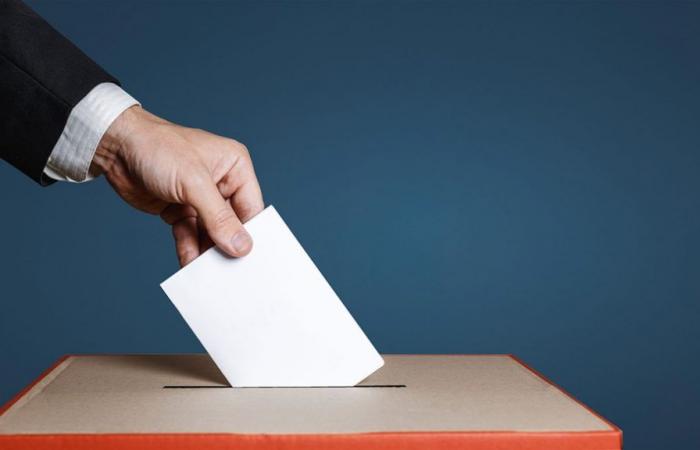
There is also the executive power which enforces the laws. It is exercised by the provincial colleges in Wallonia and the Deputations in Flanders. In Brussels, it’s different. There has been no Brussels province since 1995, which somewhat reduces the Belgian institutional lasagna.
Note that the MR and the Engagés, the two main winners of the June 9 elections on the French-speaking side, would like to eliminate the provinces. To be continued.
We vote on October 13, and after?
After the elections, the votes are counted to determine the winners of the election. This is done using a calculation system called the “Impériali key”. It is the regions which carry out this calculation and disseminate the results.
Then, we constitute a majority within the council. Among the elected councilors, there may be different political parties. To govern the municipality or the province, we use the same system as in government: certain parties must work together and form a majority. In other words, a group that brings together the majority of votes on the council.
Last step: we set this majority agreement in stone with a majority pact. It is a text which will define two things: on the one hand, the members who form this majority; on the other hand, the definition of positions within the college. In other words, we designate the mayors, aldermen, and provincial deputies.
Can we combine different levels of power?
It depends. In Brussels, it is very clear: cumulation between the regional, national or municipal levels is no. Thus, deputies elected on June 9 who would like to become mayor or alderman in their municipality will have to abandon their mandate as deputies. This is the first time that accumulation has been so clearly prohibited. The objective is to allow elected officials to concentrate 100% on what they do.
In Wallonia, it is more complex. In principle, you cannot cumulate, but there are exceptions. A quarter of the deputies elected in each party will be able to combine. The deputies concerned are designated according to their penetration rate, i.e. the number of preferential votes they receive in relation to the total number of votes in their constituency. To put it more simply, these are the most popular candidates.
In Flanders, there is no ban on combining the position of mayor or alderman with a mandate as a deputy.
How is the mayor chosen?
In Wallonia and Flanders, the mayor is the one who received the most preferential votes within the most popular list which participates in the majority pact. In other words, it is the person who received the most votes within the party who won the municipal election.
In Brussels, it’s different. The mayor must have two votes to be appointed. He must first obtain the majority of votes from the members of the municipal council. Then, he must obtain the majority of votes from the elected officials on the electoral list where he presented himself. It may therefore not be the person who received the most votes from citizens who becomes mayor.
I was summoned to be an assessor this Sunday even though I had already been in June: can I refuse this role?
What you need to know is that these two elections are not coordinated by the same organizing power. And whether for federal or municipal elections, the same person can be summoned to several successive elections to be an assessor.
However, it is possible to report this situation to the main cantonal office in order to be relieved of the mission. The final decision will be made by the president of the office, who will assess whether this presence is necessary to have the number of members required by law.
To not be an assessor, you must have a valid reason. This can be justified by a professional, educational, medical reason, or in the event of a vacation abroad. Without this, the citizen who refuses his role as assessor risks a fine. This is around 250 euros.
I am French-speaking and I live in Flanders, where voting is no longer compulsory: what should I do this Sunday?
Unlike in previous years, voters in Flanders are no longer required to participate in municipal and provincial elections. The document you may have received is not a summons, but a simple invitation to go to the polls. Indeed, for the first time this year, voting is no longer compulsory in Flanders for municipal and provincial elections. If the obligation to vote is still enshrined in the Constitution, it now only applies to federal elections.
Since 2001, the organization of local elections has come under the jurisdiction of the Regions, which allowed Flanders to modify electoral regulations this year. This change marks a turning point, while Wallonia and Brussels maintain the voting obligation for these same elections.
In Wallonia and Brussels, the obligation to vote remains in place. Citizens who do not fulfill their electoral duty without a valid proxy or justification may be summoned before the justice of the peace. In the event of a breach, a fine of up to 80 euros can be imposed, an amount which can rise to 200 euros in the event of a repeat offense. In addition, a repeat citizen may lose his or her right to vote.
I don’t know how to go vote this Sunday: is the proof of absence sufficient?
As the municipal elections approach, many citizens are asking questions about this. You should know that the certificate is not enough.
In fact, you must complete a proxy form. This is available on the Walloon elections website; the same exists for the people of Brussels. This form must be completed and signed by the voter and his proxy, therefore the person who will vote for him. The representative must himself be an elector, but he does not have to vote in the same municipality.
On the day of the vote, the proxy must present himself with the proxy form, but also his summons, to prove that he himself is a voter, and his identity card.
There are different reasons for requesting a power of attorney, and the procedures differ depending on each situation:
1. If you have to work that day, you need a certificate from your employer.
2. If you are self-employed or if you are abroad, the form must be signed by the municipality.
3. Finally, be aware that if your absence is due to a health problem, the doctor who issues the certificate cannot be a candidate on the lists.
My child wants to enter the voting booth when I go to vote on Sunday: is this possible?
Legally, no one can accompany you into the voting booth. However, the competent authorities specify that they call for the understanding and goodwill of the president of the polling station, therefore for a certain flexibility. A priori, the child can therefore accompany his or her parent, but in certain situations, the president can prohibit this.
Adults cannot accompany other adults since the vote is secret. The only situation which deviates from the rule concerns voters with mental or physical disabilities, which justifies the need for a companion.
In this case, the citizen must provide proof on the day of the election, which will also allow him to be helped in the voting booth by a member of the office if he is not accompanied.
Assistance dogs are also allowed. People with reduced mobility can request free transport to vote by contacting the local Mobility Centers on 0800 54 621.





